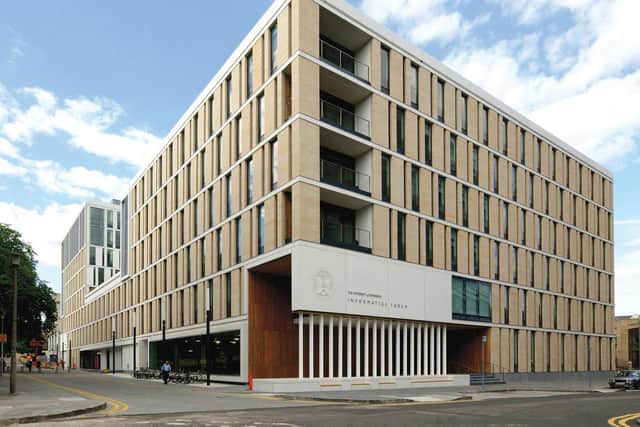Edin Uni and Cisco connect to create facility to turbocharge software capabilities
The new centre of excellence will fund research projects over the next five years, with particular focus on quantum computing, artificial intelligence (AI), and cyber security – and coincides with the University celebrating six decades “at the forefront of” AI research.
The launch of the Quantum & AI Centre of Excellence at the University follows years of close collaboration between the two organisations, who have since 2017 worked on a number of tie-ups in areas such as speech technologies, legal implications of AI, network traffic analysis and quantum programming languages.
Advertisement
Hide AdAdvertisement
Hide AdThe Centre is being led by Dr Chris Heunen, reader in quantum informatics at the University’s School of Informatics (which is claimed to be the UK’s oldest academic AI research centre) supported by Michael Rovatsos, professor of AI. Dr Heunen said: “I am delighted to lead the new [facility] with Cisco and I look forward to bringing together our expertise to push forward developments in these transformational technologies. Our aim is to combine our collective strengths to help shape the development of software technologies to benefit our economy and society as a whole.”


The latest move comes after Cisco and the University also formed a partnership in 2019 to accelerate innovation by supporting 20 start-ups through the latter’s AI Accelerator Programme. Furthermore, the duo in 2021 joined forces as part of a £12.5 million project, funded by UK Research and Innovation (UKRI), to help older people live at home for longer and with greater independence.
Professor Jane Hillston, head of the School of Informatics, also commented: “This new centre represents the next step in our journey with Cisco. Over the last five years we have developed an extremely successful partnership, with potential benefits across a wide range of applications. Software now touches most areas of daily life and it is essential that we maintain our research efforts to ensure that the software developed and deployed is of the highest standards.”
Transformative
Ramana Kompella, head of Cisco Research, cheered the new centre expanding its strategic university partnerships in the UK, adding: “Our goal is to collaborate with and fund research teams that are solving important technological challenges that will allow us to provide innovative and transformative solutions for our customers.”
Additionally, Chintan Patel, chief technology officer at Cisco UK & Ireland, pointed out: “This year the internet marked its 40th anniversary, and over five billion people around the world are now online. But continued research and innovation is vital to put the internet on a more secure and sustainable footing. Our partnership with the University of Edinburgh will help progress leading research in the AI and quantum computing technologies that will become the cornerstone of the internet of tomorrow.”
Those behind the new initiative also point out that it follows the UK Government unveiling an investment of more than £360 million in cutting-edge technologies (such as quantum computing. It is also seen as extending funding of UK quantum computing research beyond the UK National Quantum Technologies Programme, a £1 billion partnership between academia, industry and policymakers that is set to expire next year.
Comments
Want to join the conversation? Please or to comment on this article.